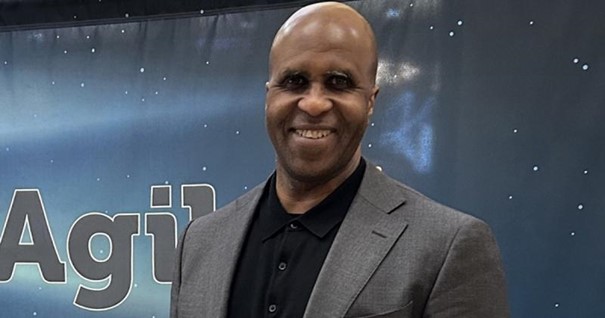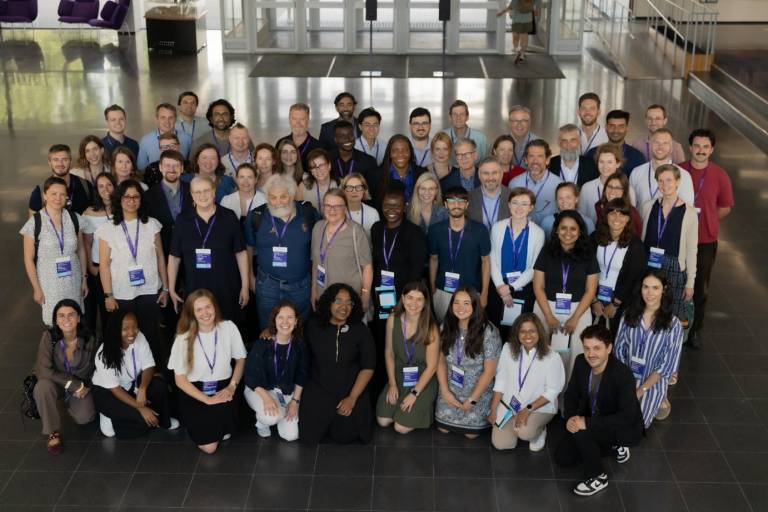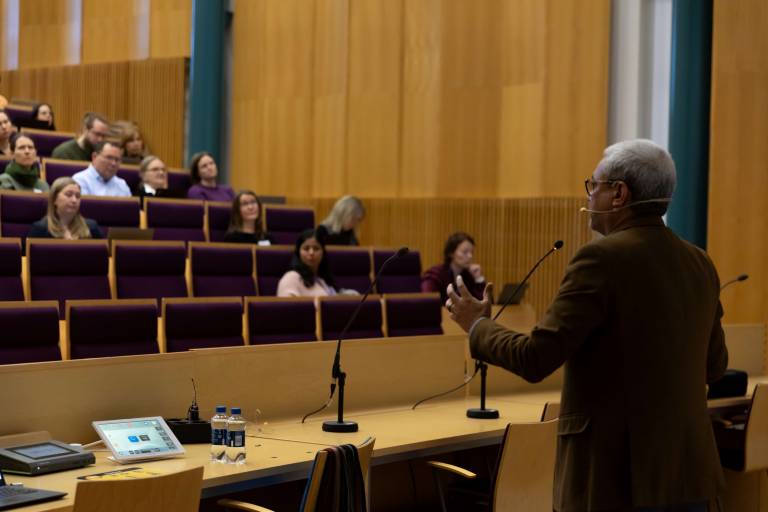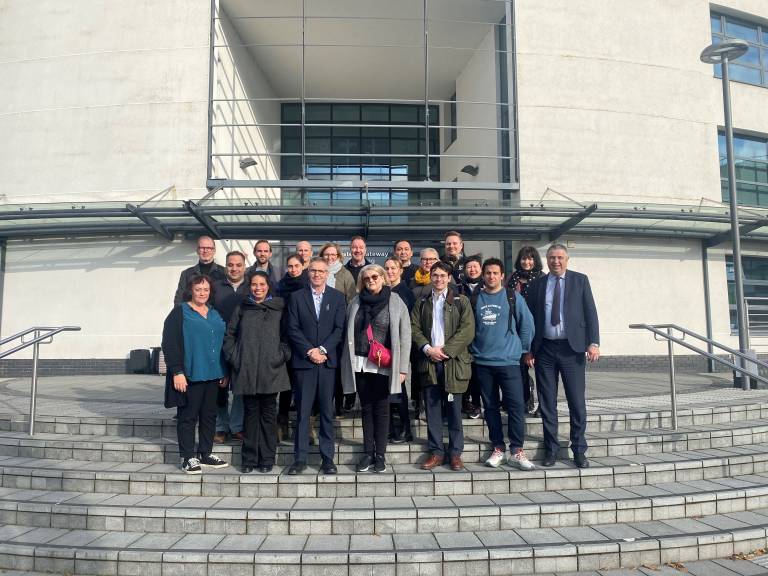Introduction
What kind of practices does a program management team use to manage the scope of their change program? In my PhD study, I investigated this question. More specific, I examined how change programs impact an organization’s structure and working methods by implementing ICT solutions. This blog post is based on the results of my PhD thesis which focused on the practices of the scope management in change programs. My PhD thesis can be downloaded from here: Practices for Scope Management in Change Programs – Trepo (tuni.fi).
Changes in organizations are inevitable
Organizations need to change in order to adapt to their environment and thrive. Those changes lead to new behaviours, ways of working and changes to existing projects and programs or implementation of new systems in projects or programs. In my PhD study, I investigated change programs, which can be understood as a temporary form of organizing. They are established to enable the fulfilment of the customers’ needs and expectations, the realization of business benefits and to capture and deliver value.
I have worked as project management practitioner for over 25 years helping customers to change their business by implementing Information and Communication Technologies solutions and thereby improve their ways of working and businesses and help them to succeed. A few years ago, I was in a conference which focused on managing customer expectations. I realized that a program management team needs to understand their customers’ needs and expectations in order to succeed in the program implementation. Furthermore, the program management team needs to recognize what it is that they really need, despite of what customer might want.That made me think about the relationships between what we want, what is expected, what is needed, and what we do. Already then, I saw the need to find answers to the question: how do we manage the scope of the change programs and ensure their success?
Change program as a mechanism for organization development
Often an organization establishes goals to achieve its wanted state. And quite often the goals are vision statements leading to changes in the way companies run and operate. This leads to the implementation of one or several change programs to achieve those goals, and the need to develop new or adapt the current strategy. The organization and the change implementation program need to know:
- What kind of benefits are expected from achieving those goals, and
- What kind of value is sought?
Thus, the change program team needs to understand and define which business areas and functions in the company are impacted by the change program and take actions and employ practices to achieve the goals. They also need to understand how big is the impact of those goals for the organization. So, they need to know: what is the scope of the change program?
A change program can be seen as a temporary form of organizing established to implement changes in the organization by introducing new systems and new processes. It possibly alters the current functional structure in order to lead to a new behaviour and to achieve the organization’s vision, deliver expected value and realize the expected benefits. The change program can emerge to deliver specific results and implement changes in the parent organization and its context. In order to implement the changes, the program management team needs to interact and manage the relationships with the parent organization’s different management levels and other stakeholders. It also needs to manage the program scope overtime.
My research demonstrated that the scope of the change programs implementing ICT systems consists not only of the constituting projects scope, but also of the established initiatives, organizational functions impacted as well as services, products, and capabilities, which were needed to deliver the expected business benefits and to achieve the program goals.
Usually change programs last long (several years) and their scope might change over time. This might occur due to the
- evolving stakeholder needs and expectations,
- changes to the perceived value delivered and realized benefits during implementation (Martinsuo, 2020), and
- the emergence of new uncertainties and ambiguities (Atkinson et al., 2006; BenMahmoud-Jouini & Charue-Duboc, 2022).
In my research, I found that as the program implementation progresses, the scope can change. The organization’s program management team also employs practices to systematically review and manage the evolving scope. Those practices can be familiar already in the beginning of the process or they can emerge over time as new knowledge is gained by the program’s actors and stakeholders.
Change programs and projects do not occur in isolation. However, previous research (Ben Mahmoud-Jouini & Charue-Duboc, 2022; Martinsuo & Lehtonen, 2009) has shown how the program management team isolates the program from the parent organization. For example, my research findings showed that the program management team used engagement practices to ensure that the needed resources are involved and contributed to the management of the evolving scope.
Project and program management practitioners often pay attention to the practices which other program managers employ to manage their scope, and how they use them to succeed and learn from their failures. In my research, I presents practices which the program management team use to manage uncertainties, ambiguities and complexities, which are characteristics of programs (Atkinson et al., 2006; Laine et al., 2016; Lehtonen & Martinsuo, 2009; Martinsuo, 2013; Pellegrinelli, 2011) and especially in change programs. When people want changes, but no one wants to change!
Proper scope management enables successful organizational change
Organizations should constantly improve their ways of working and change in order to adapt to their environment and to survive (Ojiako & Maguire, 2008). A program management team, implementing improvements, needs practices to manage the scope and to implement the organization strategy through the change programs.
Quite often change programs fail. One of the reasons is not having the right scope for the change. Another reason is a resistance due to a lack of common understanding of what is changing, why and how. To answer why, we need a reason for change, expected values, and benefits – we need change leadership. To answer what, we need a scope and to answer how we need people with right competences, knowledge, and attitude to implement the changes – we need change management.
The change program’s scope is a critical element for its success. The scope defines what we are going to do and what is going to change. Thus, the scope is a basis for defining, how we are going to implement the changes and manage the risks associated with the change program. Based on the scope, the program management team defines what are the required resources (human and financial) needed to achieve the program’s goals based on the impacted areas of the change and the relationships between those areas. In addition, the scope is the basis for controlling and defining whether the change program is successful or not.
A framework for managing the scope of change programs
In my doctoral dissertation, I developed an empirical framework of practices which the program management team used to manage the scope of the change program and its evolution over time. The findings showed that the practices were used differently according to the program type. Furthermore, the practices evolved over time as a result of new knowledge created and learnings gained, and due to the emergence of new needs and expectations. In addition, I found that the practices contributed and supported, either directly or indirectly, the scope management of the change program and thereby enabled its success.
In the studied cases, the program management team used periodically conceptualization practices for defining the program’s scope. During the scope evolution phase, those practices were employed when needed. When defining the scope, there was also a need to analyse the expected benefits. This had a direct impact on the program scope definition phase. During the scope evolution phase, the benefits realization analysis practices also emerged and they were employed on the need basis to remind the program management team and its stakeholders of the reasons why the program was established in the first place. During the change implementation phase, the program management team used periodically alignment practices between the parent organization’s strategy and the program’s scope and goals. This was done to ensure that the changes occurring in the program context do not affect the scope of the program.
Constant changes in the organization’s context and the increasing number of change programs call for the use of the conceptualization, integration, alignment practices as well as benefits realization analysis. These practices can be used to manage the change program’s evolving scope and to capture its value, but also to ensure the successful realization of its benefits and to achieve organizational goals and objectives.
Conclusion
In my PhD study, I found that the relationship between the program management team and the organization’s different management levels where the changes are implemented, changed over time. Depending of the management level, the engagement to the change program could diminish, maintain certain level or increase. This was as a result of the understanding regarding the impact and effect of the changes in the organization or the trust on the program management team.
The change program’s success is not fully defined at the beginning. But, the program’s success is enabled during its implementation phase by employing practices to manage the scope that delivers outcomes providing value and realizing expected benefits. The program management team is responsible for managing and protecting the program from the changes in the context. It is also responsible for managing the interactions with the parent organization and the program’s stakeholders, and ensuring that the program’s goals are achieved and that the parent organization captures the delivered value.
My doctoral dissertation Practices for Scope Management in Change Programs – Trepo (tuni.fi) was publicly examined at the Faculty of Management and Business on 26th of April, 2024. The link to the dissertation is above.
You can reach me at jc.guzman.monet@gmail.com or +358 505 357 459
Juan Carlos Guzmán Monet, PhD (Technology)
Key words: Management, Change Management, Organizational Development, Project, Program Management, Practices, English






Kommentit